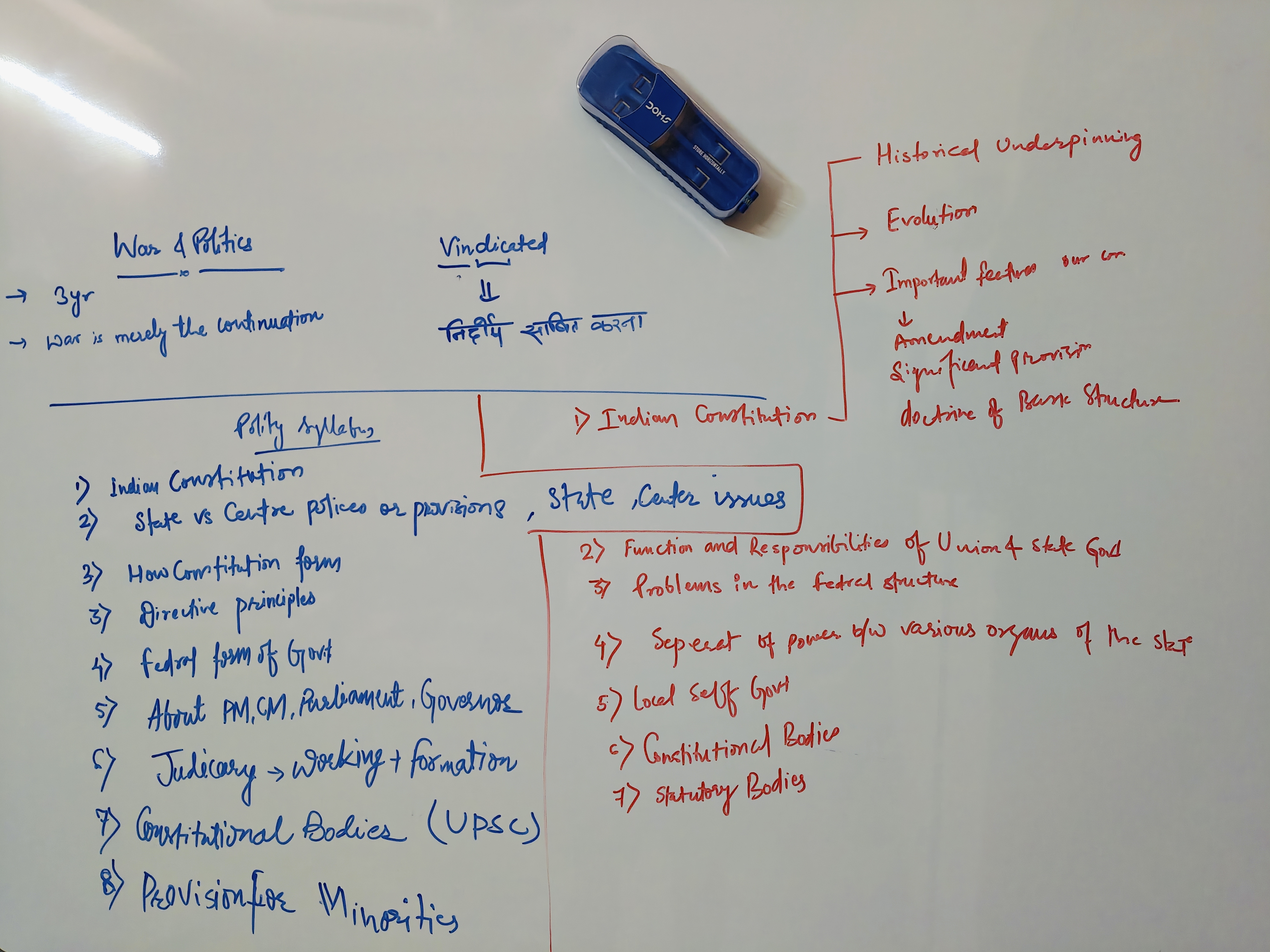Polity Syllabus,Need of constitution ,Historical Underpinnings
Introduction to the Polity Syllabus
- (1) Indian Constitution
- (a) Historical underpinnings
- (b) Evolution of our constitution
- (c) Important features of our constitution, amendments, significant provisions, and doctrine of basic structure.
- (2) Functions and Responsibilities of Union and State governments
- (3) Problems in the federal structure
- (4) Separation of Powers between various organs of the state
- (5) Local Self Governments
- (6) Constitutional Bodies
- (7) Statutory Bodies
Sources for the Polity
- Indian Polity by Laxmikanth
- VisionIAS study material
- Class Notes
- Newspaper
Need of constitution
- The natural tendency of any society is to move towards "entropy", i.e. towards destruction, anarchy, or lawlessness.
- Human beings are always guided by self-interest.
- There is every possibility that this self-interest can easily transform itself into a selfish interest.
- It can lead to exploitation, manipulation, and so on.
- To prevent societies from entropy, and also to prevent exploitation and manipulation, a constitution is necessary.
- It can protect the rights and freedoms of citizens, prevent exploitation, and make governments accountable to people for their performance.
- It can ultimately ensure strict implementation of rule of law.
- The survival of any civilization depends on the ability of its administrative systems to protect and promote the welfare of its citizens.
- It is possible only with a written constitution.
Historical Underpinnings
- Regulating acts were introduced to exert the control of the British Parliament over the East India Company.
- Under Morley Minto Reforms, introduced in 1909 communal electorates were introduced.
- Under the Government of India, act, of 1919 transferred and reserved subjects were introduced.
- Simon commission's recommendation led to round table conferences.
- Outcomes of round table conferences led to the introduction of the Government of India Act of 1935.
- It introduced these:
- (a) Parliamentary form of democracy
- (b) Federal form of government
- (c) bicameral legislature
- (d) Independent Judiciary
- (e) Division of Power






0 Comments